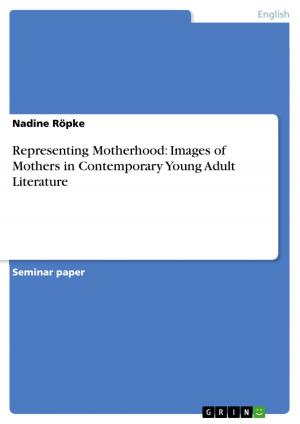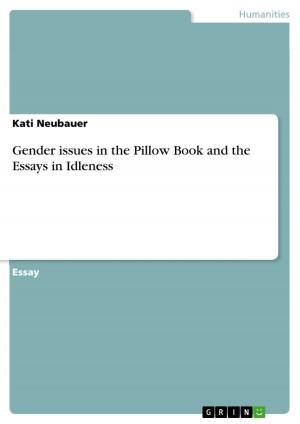| Author: | Simon Oerding | ISBN: | 9783640307746 |
| Publisher: | GRIN Publishing | Publication: | April 6, 2009 |
| Imprint: | GRIN Publishing | Language: | English |
| Author: | Simon Oerding |
| ISBN: | 9783640307746 |
| Publisher: | GRIN Publishing |
| Publication: | April 6, 2009 |
| Imprint: | GRIN Publishing |
| Language: | English |
Seminar paper from the year 2008 in the subject Politics - International Politics - Topic: Globalization, Political Economics, grade: 1,3, University of Münster (Institut für Politikwissenschaft), course: Hauptseminar: Globalisation and Global Governance, language: English, abstract: [...] Clearly, the paper revolves around the normative concept of global governance. While in scientific literature, the normative concept of global governance has become unfashionable by the time and a rather critical analysis of the implication of international regulation has taken precedence, it will be outlined that there is good reason to investigate the connection between the UN and the normative concept. By no means does this foreclose the importance of critical scrutiny of the establishing governance architecture. The criticism of global governance as the perpetuation of neoliberal hegemony and Western domination is acknowledged but will not be dealt with from this point on. Surprisingly little effort been made so far to systematically link the concept of global governance, be it normative or analytical, to the United Nations system although on a gut level, scholars seem to agree that both are somehow linked. At the start of the analysis, this paper sets out to present a first useful framework put forth by Brühl and Rosert (Brühl/Rosert 2007) and adds a missing category to the analysis, the link between the UN and the normative concept of global governance. In the normative tradition, the developed framework inter alia proposes to consider the UN as a potential activator for global governance as a normative concept. While the connection of global governance and the UN as its activator offers room for gripping research, the ambition of this paper is much downgraded. It only seeks to offer a starting point by investigating whether the UN can actually advance global governance and tries to enable a first cautious approach to the more general hypothesis above. To facilitate this analysis, in a first step a major problem of global governance is selected. The fundamental lack of integration of non-state actors into governance structures serves as a case in point for that matter. The legitimacy of global governance suffers from this lack which in turn impedes reaping the desired benefits of the concept. In a second step, the UN's capacity to solve the depicted problem is analysed. [...]
Seminar paper from the year 2008 in the subject Politics - International Politics - Topic: Globalization, Political Economics, grade: 1,3, University of Münster (Institut für Politikwissenschaft), course: Hauptseminar: Globalisation and Global Governance, language: English, abstract: [...] Clearly, the paper revolves around the normative concept of global governance. While in scientific literature, the normative concept of global governance has become unfashionable by the time and a rather critical analysis of the implication of international regulation has taken precedence, it will be outlined that there is good reason to investigate the connection between the UN and the normative concept. By no means does this foreclose the importance of critical scrutiny of the establishing governance architecture. The criticism of global governance as the perpetuation of neoliberal hegemony and Western domination is acknowledged but will not be dealt with from this point on. Surprisingly little effort been made so far to systematically link the concept of global governance, be it normative or analytical, to the United Nations system although on a gut level, scholars seem to agree that both are somehow linked. At the start of the analysis, this paper sets out to present a first useful framework put forth by Brühl and Rosert (Brühl/Rosert 2007) and adds a missing category to the analysis, the link between the UN and the normative concept of global governance. In the normative tradition, the developed framework inter alia proposes to consider the UN as a potential activator for global governance as a normative concept. While the connection of global governance and the UN as its activator offers room for gripping research, the ambition of this paper is much downgraded. It only seeks to offer a starting point by investigating whether the UN can actually advance global governance and tries to enable a first cautious approach to the more general hypothesis above. To facilitate this analysis, in a first step a major problem of global governance is selected. The fundamental lack of integration of non-state actors into governance structures serves as a case in point for that matter. The legitimacy of global governance suffers from this lack which in turn impedes reaping the desired benefits of the concept. In a second step, the UN's capacity to solve the depicted problem is analysed. [...]















